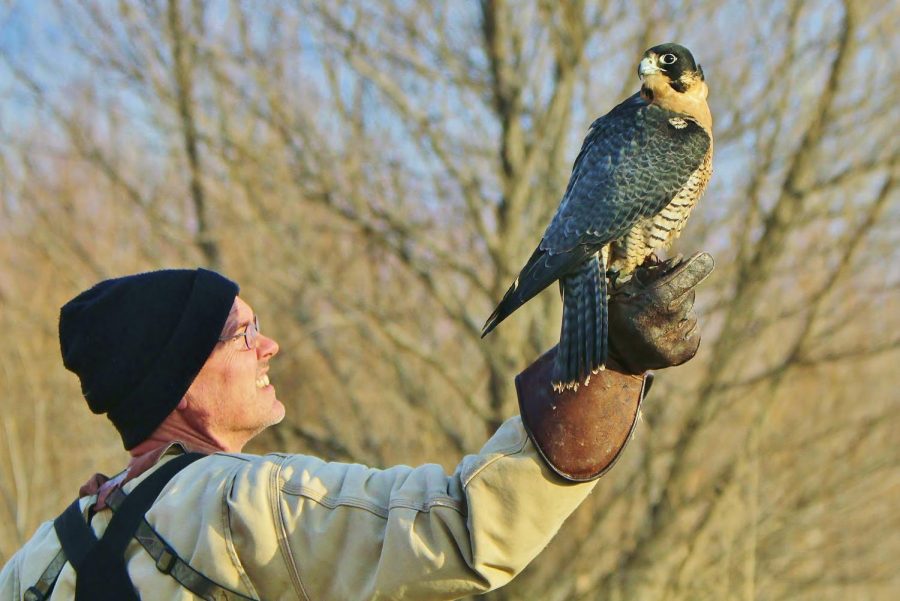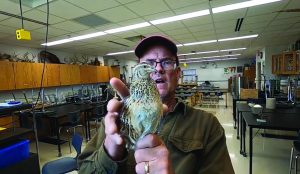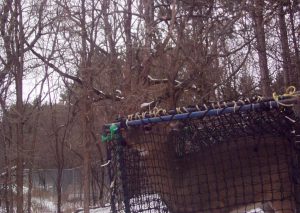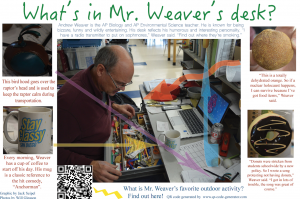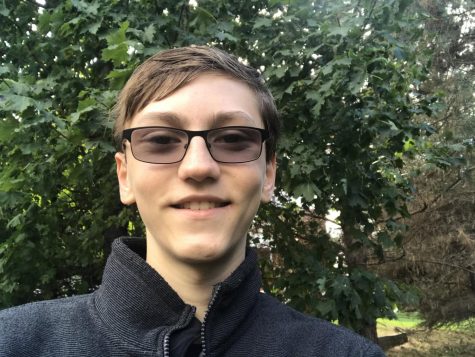Weaver hatches, raises falcons to instruct his classes
Photo submitted by Andrew Weaver
Andrew Weaver outside with one of his raptors.
March 12, 2021
Andrew Weaver, biology and environmental science teacher, is most widely known for his long-time dedication to raising Peregrine Falcons.
Weaver’s hobby started in his youth when he used an incubator in his basement to hatch eggs from various bird species. With each passing year, Weaver’s interests grew, his knowledge expanded and today he is a widely known Peregrine Falcon specialist.
“Way back when I was a kid, I had a big incubator in the basement. As word got out in my small community people would find duck eggs, goose eggs, or Robin eggs and they’d bring them to me and I would try to hatch them,” licensed falconer Weaver said.
There were not many places for Weaver to learn about raising animals as a kid, so everything he knew was mostly self-taught.
“Right now I’m doing things, incubation wise, that are more technical and state of the art. When I was a kid I just put eggs into the incubator to see what would happen,” Weaver added.
Weaver kept his passion for wildlife throughout high school. He eventually was introduced to the concept of raising and training falcons.
“I remember reading an article while sitting at the kitchen table during my high school years about how the state of Minnesota is contemplating releasing falcons to restore the lost population, and I thought it would be so cool to see a Peregrine Falcon and maybe someday train and hunt with one,” Weaver explained.
Weaver decided to pursue more research. There were no classes for him to take on the subject, so once again he had to teach himself. He began reading books about laws, biology, and other things. Eventually, he was able to become a licensed falconer.
“I became a licensed Falconer right out of high school. I had a lot of expertise with ducks and geese and that kind of stuff, but I’d never worked with raptors before, so I spent probably 10 years hunting with raptors throughout college. That led to a real appreciation for falcons,” Weaver said.
Weaver desired to teach his knowledge of falcons at the high school where he worked.
“Teaching was a neat way to put a whole bunch of things together for me; It allowed me to talk about all things that intrigued me about the outdoors, including hunting, fishing, falconry, beekeeping, maple syruping, and the list goes on and on,” Weaver explained.
Many students appreciate the hands-on approach his classes take. In the APES (AP Environmental Science) class, there is a lot of content, but students will not actually open the APES textbook for about eight weeks.
“You just run around in the woods with him and he teaches science the way he wants to teach it to you. I didn’t think you could be so engaged in such a grind of a class; there’s just so much content, but he actually makes it engaging,” junior Margaret Swenson said.
Weaver’s knowledge and passion for his curriculum, combined with his comedic personality, clearly captures the attention of his students. It may be that the passion he has for the outdoors, and Peregrine Falcons in particular, becomes infectious. Perhaps some of his students will one day pursue the outdoors with as much passion as he has.


